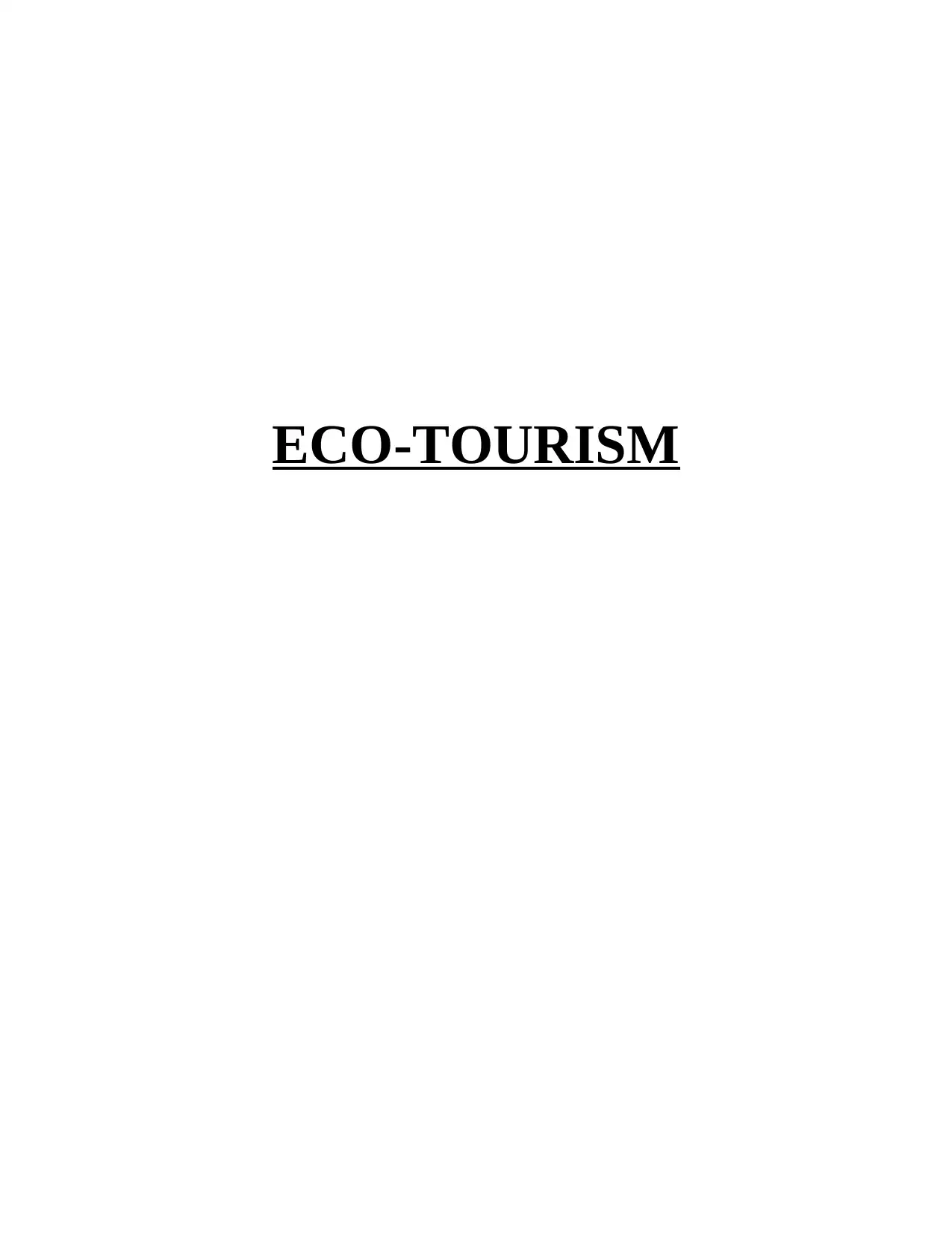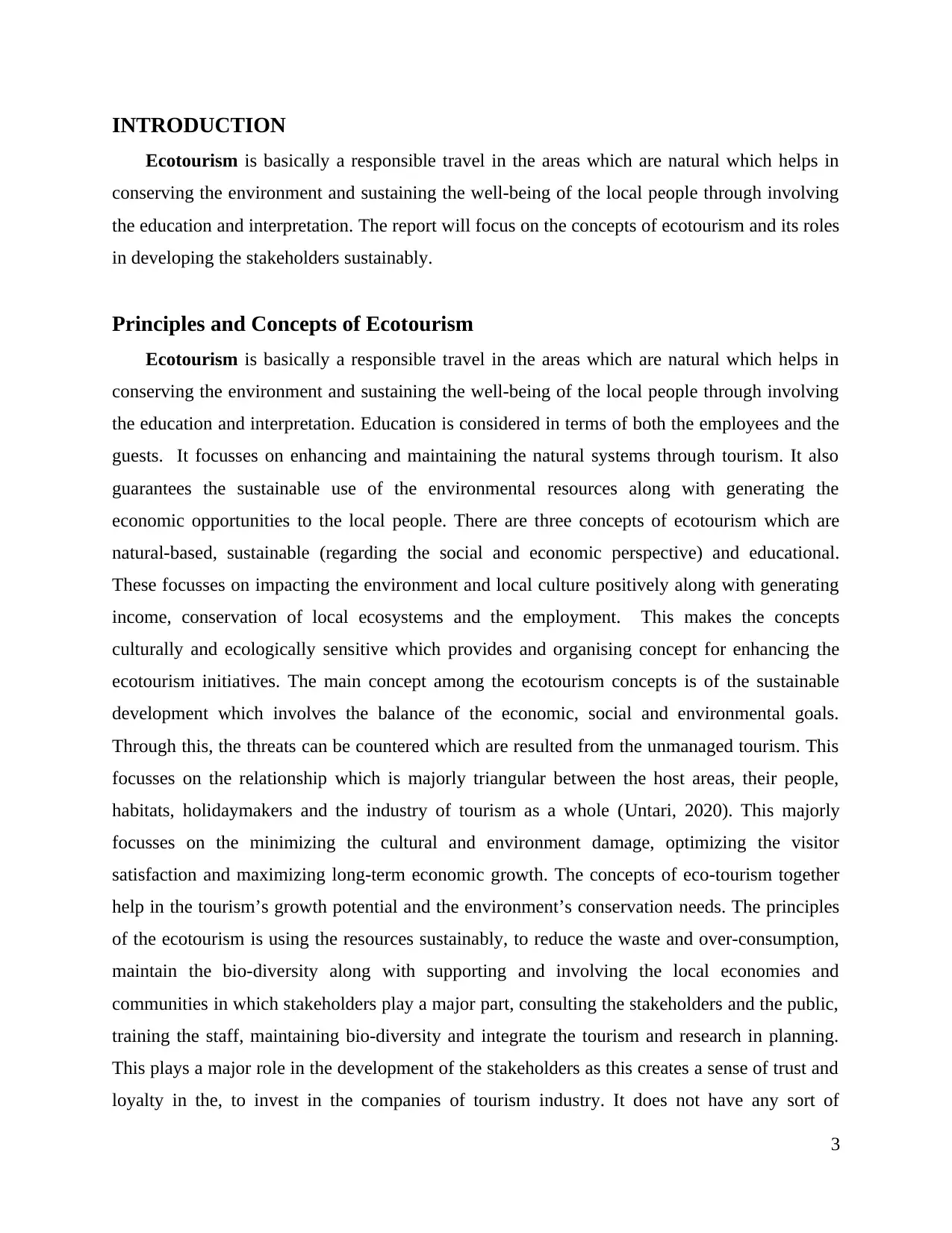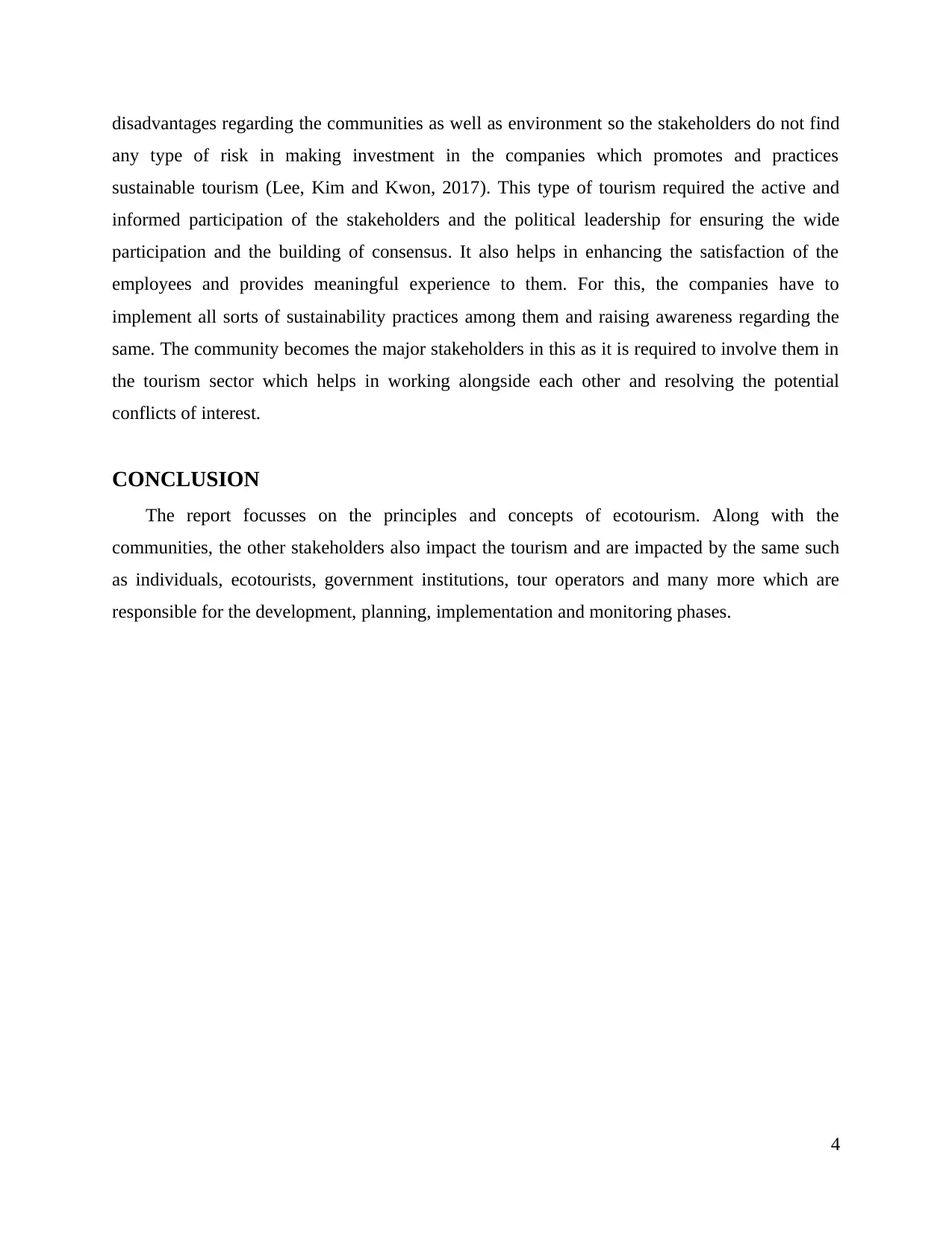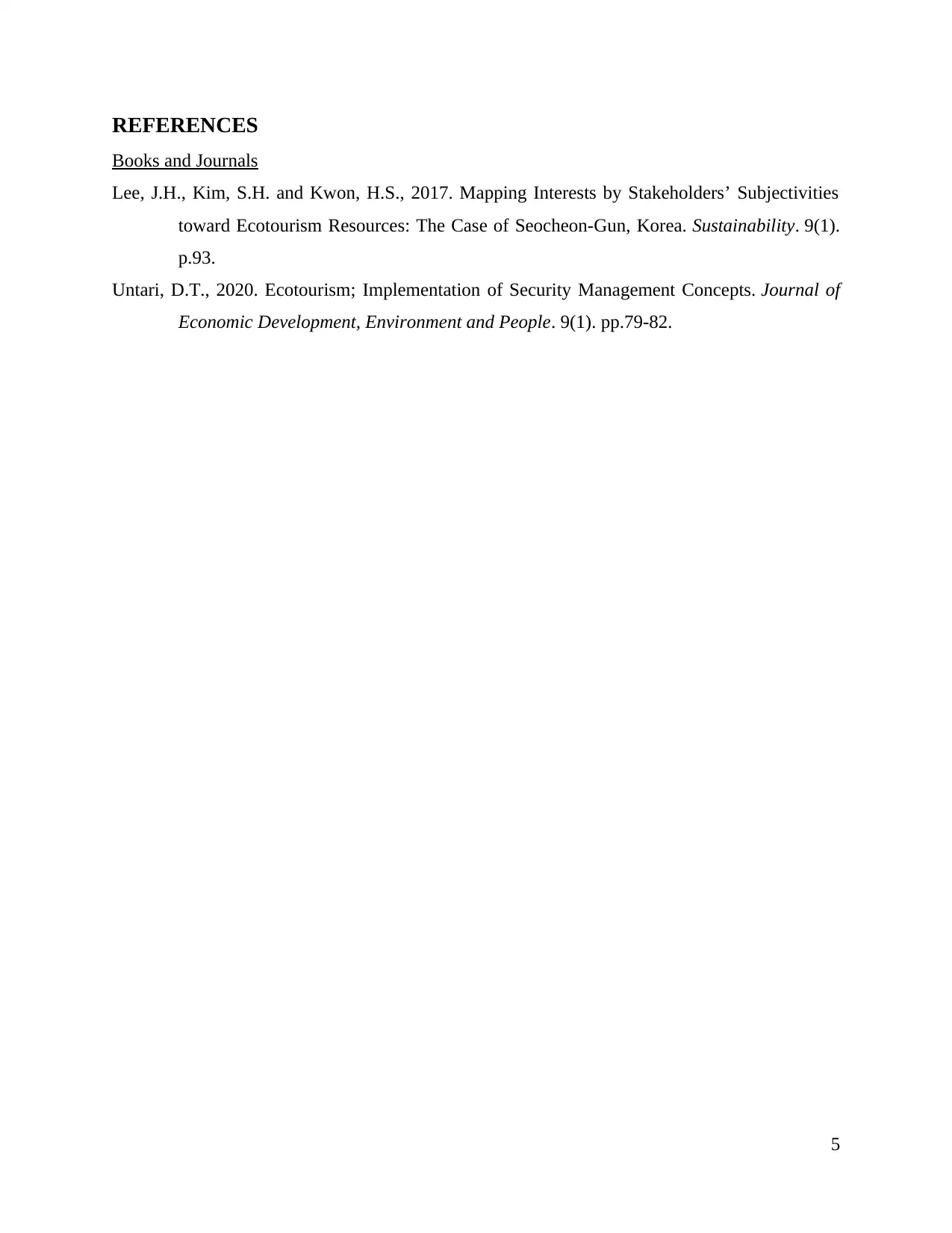Ecotourism: Sustainable Development and Stakeholder Roles
VerifiedAdded on 2022/12/30
|6
|716
|66
Report
AI Summary
This report provides an overview of ecotourism, defining it as responsible travel in natural areas that supports environmental conservation and local communities. It delves into the core principles and concepts of ecotourism, emphasizing its educational, sustainable (social and economic), and natural-based aspects. The report highlights the importance of education for both employees and guests in fostering a positive impact on the environment and local culture, generating income, and conserving ecosystems. It also underscores the significance of sustainable development, balancing economic, social, and environmental goals to mitigate the negative effects of unmanaged tourism. The report discusses the triangular relationship between host areas, people, habitats, tourists, and the tourism industry, emphasizing the minimization of environmental and cultural damage, visitor satisfaction, and long-term economic growth. The principles of ecotourism, including sustainable resource use, waste reduction, biodiversity maintenance, and local community involvement, are also examined. The role of stakeholders, including individuals, ecotourists, government institutions, and tour operators, in the development, planning, implementation, and monitoring of ecotourism initiatives is discussed. The report concludes by reiterating the importance of stakeholder participation in fostering trust, loyalty, and meaningful experiences, ultimately contributing to the sustainable growth of ecotourism and the conservation of the environment.
1 out of 6











![[object Object]](/_next/static/media/star-bottom.7253800d.svg)